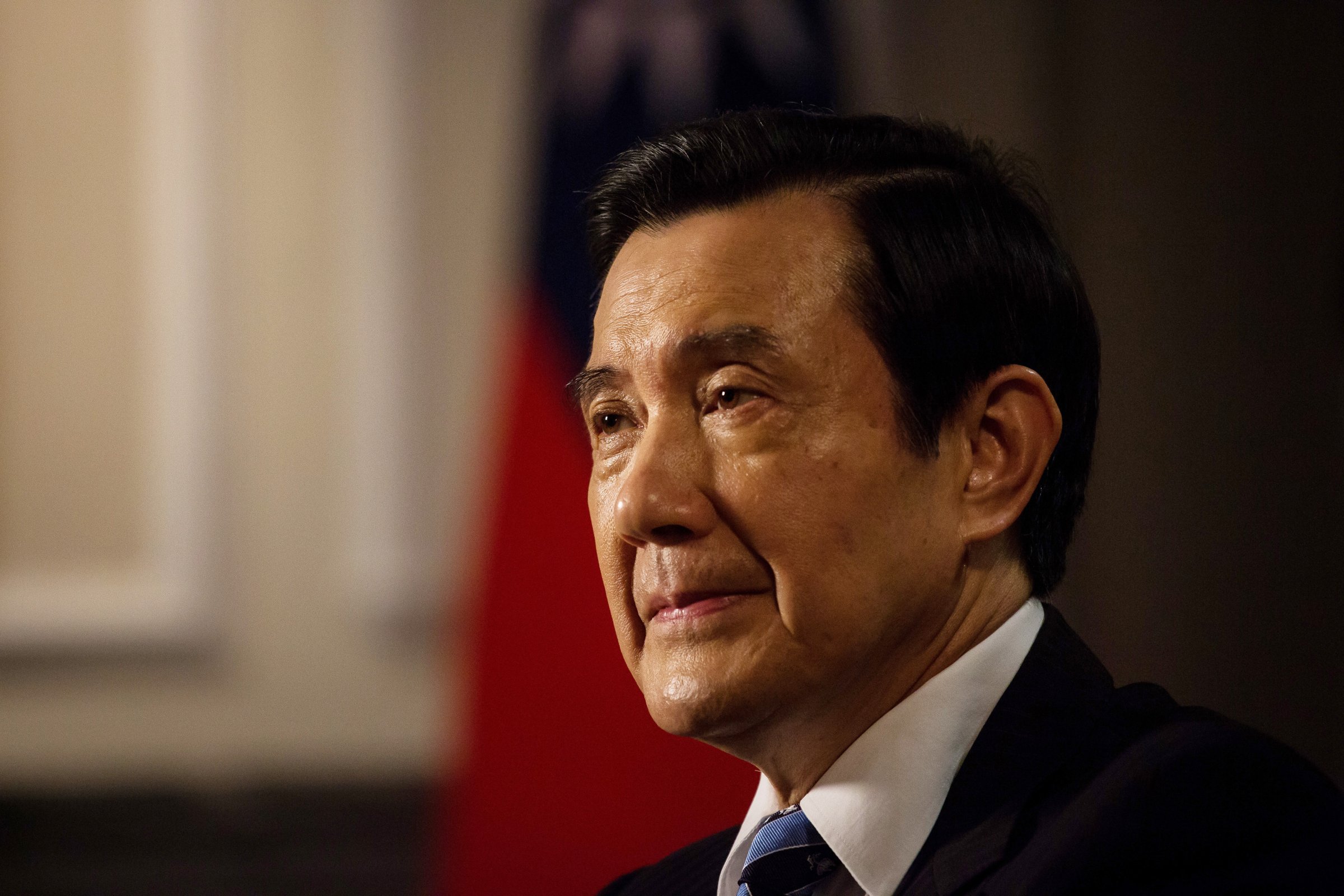
Taiwan’s former President Ma Ying-jeou has been refused permission to visit Hong Kong for a speaking engagement by the very government he led until late last month.
Ma, who helmed the self-ruled island of 24 million from 2008–16, was due to give the keynote speech on Wednesday at the Society of Publishers in Asia (SOPA) award dinner in Hong Kong, where he was born in 1950.
A spokeswoman for Ma’s office said the decision showed “disrespect” and “damages Taiwan’s democratic image in the world.” Hau Lung-bin, vice chairman of Ma’s Kuomintang (Nationalist Party or KMT), decried “a lack of self-confidence and goodwill” from Tsai Ing-wen, the new President of Taiwan, who was inaugurated May 20 following the landside victory of her Beijing-skeptic Democratic Progressive Party (DPP) in January elections.
According to Taiwan’s Presidential Office, the refusal was due to Ma having only recently left office, a lack of adequate preparation time, and there being no precedent of security cooperation between Taiwan and the semiautonomous Chinese territory of Hong Kong.
“At such short notice, it is unlikely that the new government could discover what kind of classified information [Ma had] accessed and whether he had returned all those documents and completed clearance procedures,” said spokesman Alex Huang.
Since Hong Kong returned to Chinese rule in 1997, the former British colony has enjoyed rights and freedoms unthinkable on the mainland, under an agreement known as “one country, two systems.” However, Beijing’s increasing presence in Hong Kong appears to have sparked security concerns among Tsai’s administration.
Taiwan has already been shaken by the deportation in April of at least 45 of its citizens from Kenya to mainland China, where they were wanted on fraud charges. Taipei regarded the deportations as a flagrant violation of its jurisdiction.
The island effectively broke from the mainland in 1949 following China’s civil war; however, Beijing insists that Taiwan still falls under its dominion, and has vowed to retake it by force if necessary.
Tsai’s DPP has long incensed Beijing by refusing to acknowledge that Taiwan is part of China — thus opening the door for a formal break from the mainland. Ma, by contrast, spent his two terms building fraternal ties with Beijing, causing many independence-minded voters in Taiwan to doubt where his true loyalties lie.
According to Professor Lin Chong-pin, of Tamkang University’s Graduate Institute of International Affairs and Strategic Studies in Taipei, the nixing of Ma’s trip was likely the result of Tsai bowing to pro-independence hard-liners within her party.
“There are growing sentiments questioning [Tsai’s] ideals,” Lin tells TIME. “Because everyone believed that her conviction was for Taiwanese independence, but she has been very pragmatic since she was inaugurated. Therefore internal mistrust is growing.”
And external mistrust may well follow. Already some Chinese universities have canceled study exchange programs with Taiwan after Tsai’s inauguration, and mainland authorities will clearly be irked by Taiwan’s most pro-Beijing leader of recent times being forced to address the SOPA dinner via video link.
“It is rare for a President who just left office to go abroad,” says Sheng Jiuyuan, dean of the Taiwan Research Center at the Shanghai Academy of Social Sciences. “But as a law-abiding guy, Ma should be trusted. The DPP’s extreme reaction will cause discontent and raise question about its position on cross-strait relations.”
More Must-Reads from TIME
- Why Trump’s Message Worked on Latino Men
- What Trump’s Win Could Mean for Housing
- The 100 Must-Read Books of 2024
- Sleep Doctors Share the 1 Tip That’s Changed Their Lives
- Column: Let’s Bring Back Romance
- What It’s Like to Have Long COVID As a Kid
- FX’s Say Nothing Is the Must-Watch Political Thriller of 2024
- Merle Bombardieri Is Helping People Make the Baby Decision
Write to Charlie Campbell / Beijing at charlie.campbell@time.com